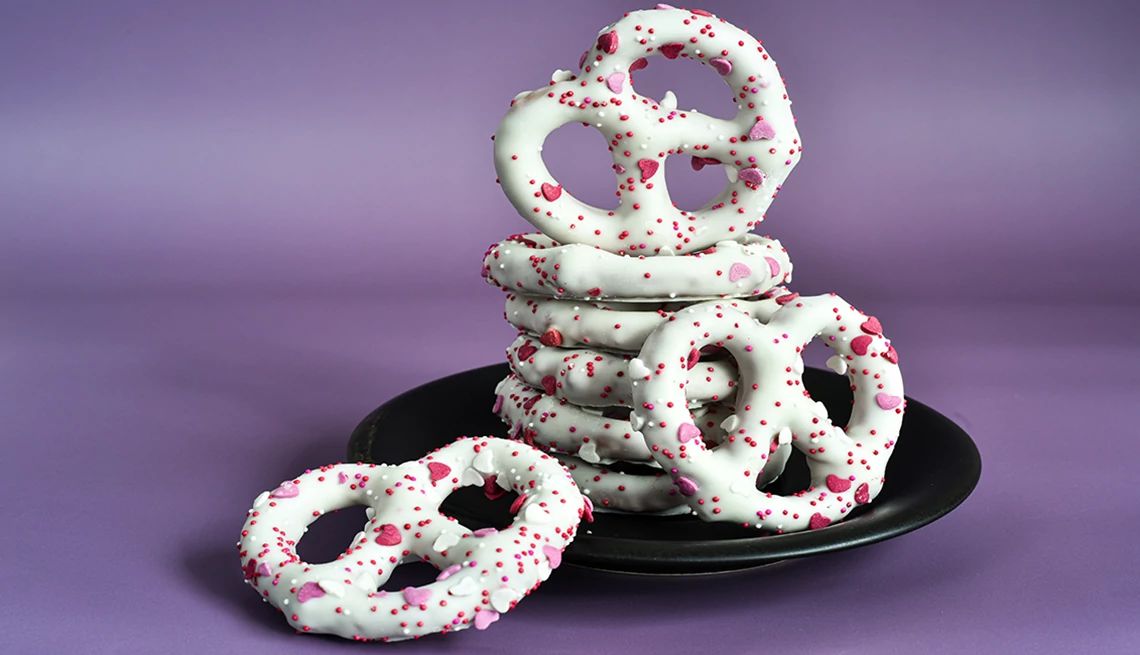Yogurt-covered pretzels, other coated confections recalled for salmonella
- Select a language for the TTS:
- UK English Female
- UK English Male
- US English Female
- US English Male
- Australian Female
- Australian Male
- Language selected: (auto detect) - EN

Play all audios:

A variety of yogurt-covered pretzels and other confection-coated treats have been recalled because they may be contaminated with salmonella, a type of bacteria that can cause serious and
sometimes fatal infections in older adults. The recall was made after the manufacturer, Palmer Candy Co., was informed by its liquid-coating supplier of a potential contamination, according
to an announcement posted by the Food and Drug Administration. The recalled products were sold nationwide at Walmart, Target, Dollar General and Hy-Vee, among other stores. No illnesses
have been reported in connection with the recall. Production of the affected products has been suspended while the FDA and the company continue to investigate the source of the problem.
THE RECALLED PRODUCTS The recalled confectionary-coated snacks were sold under several brand names, including Casey’s, Favorite Day Bakery, Freshness Guaranteed, Kwik Trip Inc., Palmer,
Snackin’ With The Crew, Sconza Chocolates, Sunny Select, Sweet Smiles and Urge. More than 25 products are affected, including caramel pretzel swirls, white fudge mini cookies, zebra fudge
cookies and assorted snack blends containing pretzels, chocolate and other candy. The products have “best by” dates from December 2024 to April 2025. Find the full list of products on the
FDA’s announcement page. Consumers who bought the recalled food may return it to the place of purchase for a full refund. Other questions can be made to Palmer Candy Co. at 800-831-0828.
SYMPTOMS OF A SALMONELLA INFECTION Salmonellosis, the intestinal infection caused by the salmonella bacteria, typically leads to diarrhea, fever and stomach cramps. In severe cases, the
infection can spread from the intestines to urine, blood, bones, joints, spinal fluid or brain. Symptoms generally begin six hours to six days after infection and can last up to seven days.
However, in some instances, symptoms can appear weeks after infection or remain for several weeks, according to the Centers for Disease Control and Prevention.Most people can recover without
an antibiotic, but treatment is recommended for anyone with severe illness. Infected adults over age 65 (or over 50 if an underlying condition such as heart disease is present), infants
and those with a weakened immune system are also advised to take an antibiotic. Call a physician right away if you or a loved one have: * Diarrhea and a fever higher than 102 degrees *
Diarrhea for more than three days that is not improving * Bloody diarrhea * So much vomiting that liquid can’t be kept down, or signs of dehydration, such as infrequent urination, feeling
dizzy when standing up, or dry mouth and throat